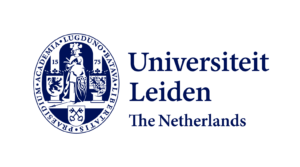Marek Kwiek had a seminar at CWTS Leiden University on June 3, 3023:
“How Scientists Change Over Time: Persistence in High (and Low) Individual Research Productivity from a Life-Cycle Perspective”
Link to the seminar is here.
Abstract
To what extent individual research productivity changes over a life-course of scientists: what productivity classes current full professors belonged to – when they were assistant and associate professors? And current late-career scientists – when they were early-career scientists?
Large cohorts of academics are traced over their careers lasting up to 50 years and allocated to retrospectively constructed productivity classes.
For a national case study (Poland), there are 2300 full professors, and for a global study (38 OECD countries), 280,000 late-career scientists.
The power of (structured) Big Data in quantifying academic careers in science, technology, engineering, mathematics and medicine (STEMM) disciplines will be shown, and tensions between national and global approaches will be discussed.
More than a half of the scientists in the bottom (56%) and top (65%) productivity classes remained in the same class in both the early career to mid-career and mid-career to late career transitions. No matter which productivity type is used, the general patterns are similar.
Top performers, bottom performers, jumpers-up and droppers down are examined, large scale, across 16 disciplines.
The chances to be a Jumper-Up are marginal (1%-3%).
Traditional theories from sociology of science in which persistence in high productivity is key to academic success will provide a context. Methodological choices will be discussed.
Two large-scale data sets are used: “The Laboratory of Polish Science” with full biographical, administrative, and bibliometric metadata of 100,000 scientists; and the metadata from Scopus database (through the ICSR Lab) at an individual level of Scopus IDs (4.3 million nonoccasional scientists from STEMM).
Link to article: Kwiek, M., Roszka, W. “Once highly productive, forever highly productive? Full professors’ research productivity from a longitudinal perspective”. Higher Education (2023). https://doi.org/10.1007/s10734-023-01022-y
Registration open at:

Biography
Professor Marek Kwiek is Director of the Institute for Advanced Studies and UNESCO Chair in Institutional Research and Higher Education Policy, AMU University of Poznan, Poland (www.cpp.amu.edu.pl). His research area is quantitative studies of science, with interests in globalization of science, global academic profession, and international research collaboration. He has published 230 papers and his recent monograph is Changing European Academics: A Comparative Study of Social Stratification, Work Patterns and Research Productivity (Routledge, 2019). His most recent invited seminars include Berkeley, Harvard, Stanford, Oxford, Beijing and Hong Kong. He spent three years at North American universities, including the University of Virginia, UC Berkeley, National Endowment for Democracy in Washington, DC, and McGill University. He was also a Fulbright New Century Scholar in higher education (2007-2008) and a Professorial Visiting Fellow at the UCL Institute of Education, London (2012-2013). Currently (2022-2023), he is a Visiting Researcher at the German Center for Higher Education Research and Science Studies (DZHW), Berlin. A Principal Investigator or country Team Leader in 25 international higher education research projects. An ordinary member of the European Academy of Sciences and Arts (EASA) in Salzburg and Academia Europaea in London. Contact: kwiekm@amu.edu.pl. Twitter: @Marek_Kwiek.


